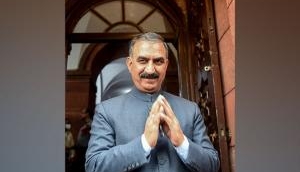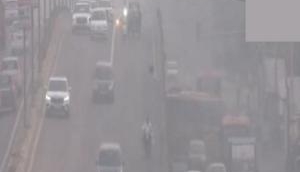
On 17 October, Home Minister Rajnath Singh unleashed a blistering attack on Pakistan-sponsored terrorism, condemning the nation for the same and warned that "those who rear snakes would be bitten".
India is against Pakistan-sponsored terrorism, but does not hate its people, the minister said and offered help to conduct anti-terrorism campaign in Pakistan-occupied-Kashmir for the "closure of terror factories".
The Home Minister's attack on Pakistan comes a day after Prime Minister Narendra Modi dubbed it as the mothership of terrorism.
By adopting terrorism as its state policy, Pakistan is getting isolated not only in South Asia but also in the international community, Singh said.
"Pakistan is so much obsessed with some issues that neither it can benefit others nor it can see its own welfare. Its obsession with Kashmir has reached such a level that it cannot tell apart a terrorist from a freedom fighter," the Minister said.
He termed Pakistan's flexible attitude towards terrorism as "the biggest hindrance" in the bilateral relationship.
"As far as the relationship between India and Pakistan is concerned, the biggest hindrance is Pakistan as its attitude towards terrorism is quite flexible. As far as India's intention is concerned, we want to eliminate terrorism from the entire region," Singh said.
He said the logic of state and non-state actors which used to be given in connection with Pakistan has now turned "hollow".
The Home Minister stressed that India "hates" Pakistan sponsored terrorism and not its people.
"No hatred towards people of Pakistan. We do not hate people of Pakistan and we do not want to keep a distance from them. We hate Pakistan-sponsored terrorism only.
"If its intentions remain clear, India can help Pakistan carry out an anti-error campaign in PoK. If Pakistan wishes, it can seek our help and India is ready to help it. It can also take help from anyone in the global community. But its intentions are not clear," he said.
Singh said that with the closure of "terror factories in Pakistan, peace and harmony will prevail in South Asia and a way to development and prosperity will open."
Speaking about surgical strikes, Singh said, "Our army crossed the LoC not to attack Pakistan. It went to carry out pre-emptive anti-terror surgical action against dangers of terror lurking on the border. We had information that there were some terrorists at launching pads wanting to carry out attacks in India."
The Union Minister said that at the BRICS Summit, the participating nations have also strongly condemned "those who shelter terrorism".
He also stressed on creating physical barriers like floodlighting in areas along the border with Pakistan to thwart any terror activity.
Physical barriers have been put up along 2,034.96 km of the 2,289.66 km-long Indo-Pak border, he informed.
"The rest of the boundary is 254.80 km-long. It includes riverine areas and tough terrains. We have decided to create physical barriers wherever possible. Where physical barriers like erecting fencing is not possible, non-physical barriers should be created," he said.
"For non-physical barriers, there are solutions like sensors, radars and laser wall. These all will be used," he said, adding a pilot project in this direction is being implemented by BSF in Jammu, Punjab and Gujarat.
"The use of non-physical barriers on experimental basis will help ascertain up to what extent it is helpful and what sort of loopholes are there which need to be addressed. A report in this regard is expected to come by the end of the year," he said.
--PTI







![BJP's Kapil Mishra recreates Shankar Mahadevan’s ‘Breathless’ song to highlight Delhi pollution [WATCH] BJP's Kapil Mishra recreates Shankar Mahadevan’s ‘Breathless’ song to highlight Delhi pollution [WATCH]](https://images.catchnews.com/upload/2022/11/03/kapil-mishra_240884_300x172.png)

![Anupam Kher shares pictures of his toned body on 67th birthday [MUST SEE] Anupam Kher shares pictures of his toned body on 67th birthday [MUST SEE]](https://images.catchnews.com/upload/2022/03/07/Anupam_kher_231145_300x172.jpg)






